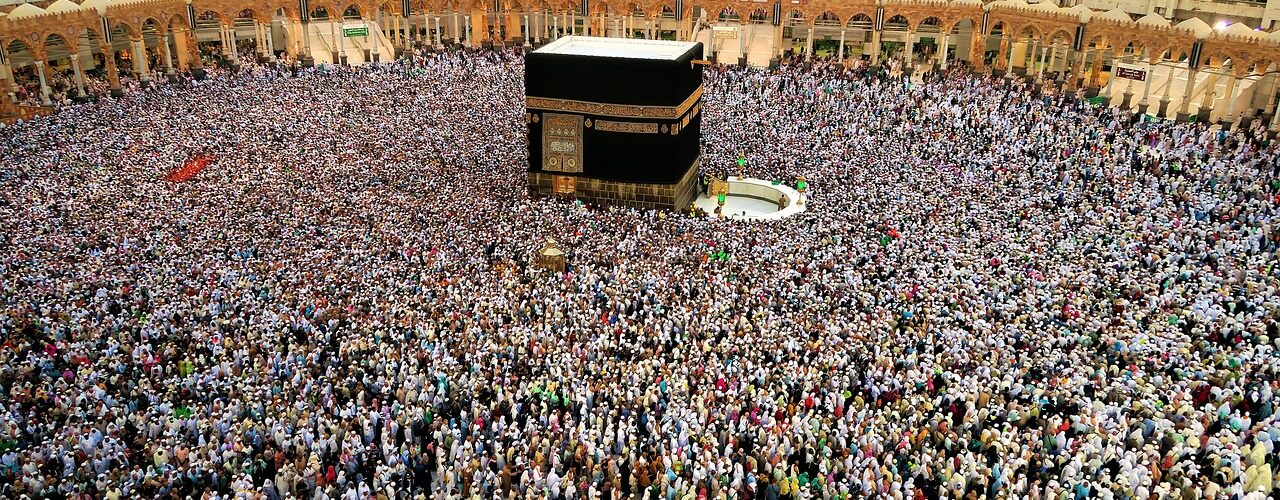History of Islam with 360 Weeks

The history of Islam is extensive and profound, spanning over 1,400 years. Here’s an overview of its key phases and development.
Islam, a faith that emerged in the 7th century in the Arabian Peninsula, holds a profound historical legacy that spans over fourteen centuries. Rooted in the teachings of Prophet Muhammad, whose revelations in Mecca and Medina laid the foundation for this monotheistic religion, Islam swiftly expanded beyond the Arabian borders, shaping civilizations, cultures, and societies across continents. From its early days of rapid expansion under the Rashidun Caliphate to the heights of the Islamic Golden Age’s scientific and cultural achievements, and through periods of political fragmentation and colonial influence, the history of Islam is a tapestry woven with conquests, intellectual flourishing, societal changes, and diverse interpretations, leaving an indelible mark on human history.
Early Years (610-632 CE)
- Prophet Muhammad (PBUH)
- Islam began in the early 7th century in the Arabian Peninsula with the revelations received by Prophet Muhammad (PBUH). He preached monotheism and social justice, gaining followers and facing opposition from the Meccan elite.
- Hijra and Establishment of Medina
- In 622 CE, Muhammad’s migration (Hijra) from Mecca to Medina marked the beginning of the Islamic calendar. In Medina, he established a society based on Islamic principles.
- Expansion of Islam
- Through both diplomatic alliances and military conquests, Islam spread across Arabia during Muhammad’s lifetime.
Rashidun Caliphate (632-661 CE)
- After Muhammad’s death in 632 CE, his close companions (Caliphs) succeeded him. Caliph Abu Bakr, Umar, Uthman, and Ali led the Muslim community during this era.
- The Rashidun Caliphate expanded rapidly, conquering lands from the Byzantine and Persian Empires.
Umayyad and Abbasid Caliphates (661-1258 CE)
- The Umayyad Caliphate (661-750 CE) shifted the capital to Damascus, extending Muslim rule to North Africa, Spain (Al-Andalus), Central Asia, and India.
- The Abbasid Caliphate (750-1258 CE) moved the capital to Baghdad, fostering a golden age of Islamic civilization in science, arts, philosophy, and trade.
Islamic Golden Age (8th-14th century)
- Notable advancements in astronomy, medicine, mathematics, literature, and architecture emerged during this period in the Islamic world.
- Scholars like Avicenna, Averroes, and Al-Khwarizmi made significant contributions to various fields.
Later Periods and Fragmentation
- The Mongol invasion of Baghdad in 1258 led to the decline of the Abbasid Caliphate, marking the fragmentation of Islamic power into various empires and dynasties.
- The Ottoman Empire, Safavid Empire, and Mughal Empire were among the significant Muslim empires that emerged in different regions.
Colonialism and Modern Era
- European colonialism impacted many Muslim-majority regions from the 18th to 20th centuries, leading to the decline of Islamic governance and the spread of Western influence.
- The 20th century witnessed the rise of various Muslim movements, efforts for independence, and the establishment of modern nation-states across the Islamic world.
Throughout its history, Islam’s influence has extended across continents, shaping cultures, politics, and societies, while fostering diverse interpretations and practices within its religious framework.
In traversing the annals of time, the history of Islam stands as a testament to resilience, innovation, and cultural evolution. From its humble origins in the sands of Arabia to the heights of intellectual and scientific brilliance during the Golden Age, Islam’s trajectory has been marked by conquests, scholastic achievements, and societal transformations. Despite periods of fragmentation and external influences, the legacy of Islam endures, shaping the beliefs, customs, and identities of diverse communities across the globe. As the faith continues to evolve, its rich history remains a source of inspiration, enlightenment, and reverence, resonating through generations and contributing significantly to the rich tapestry of human civilization.








